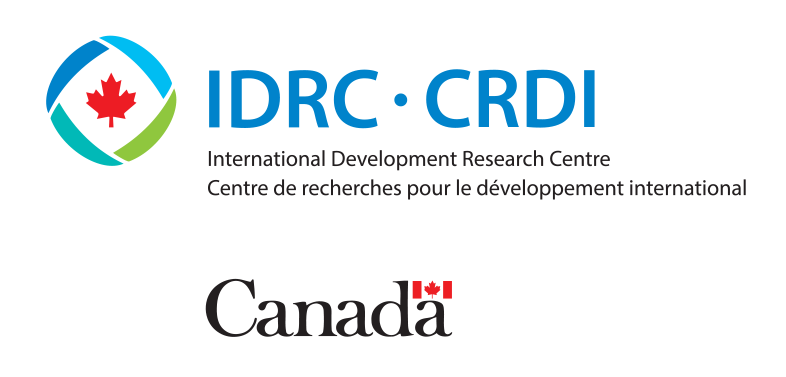About IDRC
A Crown corporation, we support leading thinkers who advance knowledge and solve practical development problems. We provide the resources, advice, and training they need to implement and share their solutions with those who need them most. In short, IDRC increases opportunities—and makes a real difference in people’s lives.
Working with our development partners, we multiply the impact of our investment and bring innovations to more people in more countries around the world. We offer fellowships and awards to nurture a new generation of development leaders.
What we do
IDRC funds research in developing countries to create lasting change on a large scale.
To make knowledge a tool for addressing pressing challenges, we
- provide developing-country researchers financial resources, advice, and training to help them find solutions to local problems.
- encourage knowledge sharing with policymakers, researchers, and communities around the world.
- foster new talent by offering fellowships and awards.
- strive to get new knowledge into the hands of those who can use it.
In doing so, we contribute to Canada’s foreign policy, complementing the work of Global Affairs Canada, and other government departments and agencies.
Resources
Displaying 41 - 45 of 324Policy brief by Environmental Rights Action/Friends of the Earth Nigeria
This policy brief serves to aid policy for land management especially in Cross River State, Nigeria. Following incessant conflicts between communities and investors (individuals, companies, multinational etc.) within the rainforest communities in Nigeria, and Cross River state in particular, Environmental Right Action/Friends of the Earth Nigeria (ERA/FOEN) conducted a study anchored on bottom-up accountability and governance: securing community tenure rights to land in impacted communities in Betem, Akpet, Idoma and Akamkpa in Cross River State Nigeria.
Collaborative action research on the rush for land and water in Uganda, Mukono District
The land in fishing communities is especially susceptible to land grabbing. Findings reveal that lawlessness, ignorance of the law, unlawful evictions and increasing conflicts in fishing and farming communities, all lead to loss of access to land and fishing grounds. This report gives background and context of the research, clarifies the legal and policy framework governing the use of land in Uganda, while providing background on the Mukono district.
Collaborative action research on the rush for land and water in Uganda, Mukono District
The land in fishing communities is especially susceptible to land grabbing. Findings reveal that lawlessness, ignorance of the law, unlawful evictions and increasing conflicts in fishing and farming communities, all lead to loss of access to land and fishing grounds. This report gives background and context of the research, clarifies the legal and policy framework governing the use of land in Uganda, while providing background on the Mukono district.
Securing community tenure rights to land in Betem, Akpet, Idoma and Akampa in Cross River State, Nigeria
The study focuses on impacts of PZ Wilmar’s acquisition of nearly 30,000 hectares of land. Wilmar is a multinational company involved in land grabbing cases related to oil palm plantations in Cross River State, Nigeria. The study shows the extent of Wilmar’s infringement on communal land rights, examining cases of eviction and destruction of livelihoods. Findings show that the four communities studied suffered from increasing food prices, deficits of local staple foods, evictions and displacement of poor farmers.
Bottom-up accountability initiatives to claim tenure rights in sub-saharan Africa : country report on South Africa
The research project uses the United Nations Food and Agriculture Organization (FAO) Voluntary Guidelines on the Responsible Governance of Tenure of land, fisheries and forests (VGGT or Tenure Guidelines) as a tool to assess the impact of various governance frameworks on small scale fishing communities. It uses the Tenure Guidelines to empower communities to protect their rights in the context of promoting food sovereignty.






